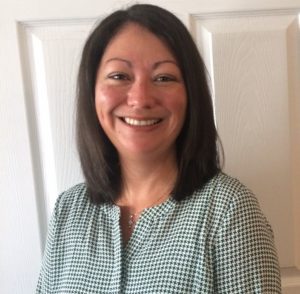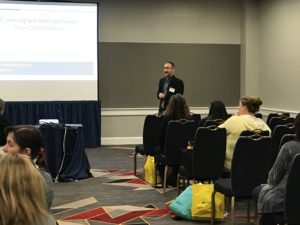 ChesMRC has received funding from Talbot County Department of Social Services, Talbot County Health Department and Talbot County Public Schools, to initiate the Interagency Cultural Competency and Interpreter Program.
ChesMRC has received funding from Talbot County Department of Social Services, Talbot County Health Department and Talbot County Public Schools, to initiate the Interagency Cultural Competency and Interpreter Program.
With this funding, ChesMRC has hired a new coordinator to develop and cultivate the program throughout the Midshore. Welcome Lorelly Solano to the ChesMRC family! Originally from Costa Rica and fluent in both English and Spanish, Lorelly also has her Ph.D in Urban Affairs and Public Policy. Lorelly brings almost a decade of experience in bilingual outreach and education, research and development and project management. In this position, she will be responsible for establishing and coordinating various diverse focus groups, cultural competency training programs and training programs for local interpreters.
CULTURAL COMPETENCY & INTERPRETER PROGRAM
What is the purpose?
An interagency collaborative was created to insure that the non-English speaking (NES) Hispanic community of Talbot County has access to trusted, professional interpreters and culturally competent services across all agencies of Talbot County. Participating partners of this initiative include Talbot County Sheriff’s Office, Talbot County Department of Emergency Services, Talbot County Health Department, Talbot County Public Schools, Talbot County Department of Social Services, Choptank Community Health and University of Maryland Regional Health.
What are the goals?
With the funding received, ChesMRC has hired a P/T Coordinator (Lorelly Solano) to develop and implement a training program (to

How will this help our community?
The future of the Eastern Shore will be created by the people who live here, who work here, and who build a life for themselves and their families here. By ensuring the NES community has access to trusted professional interpreters and culturally competent, educated service providers, life becomes better for everyone, social problems are reduced and we allow our NES residents to become productive and contributing community members.

